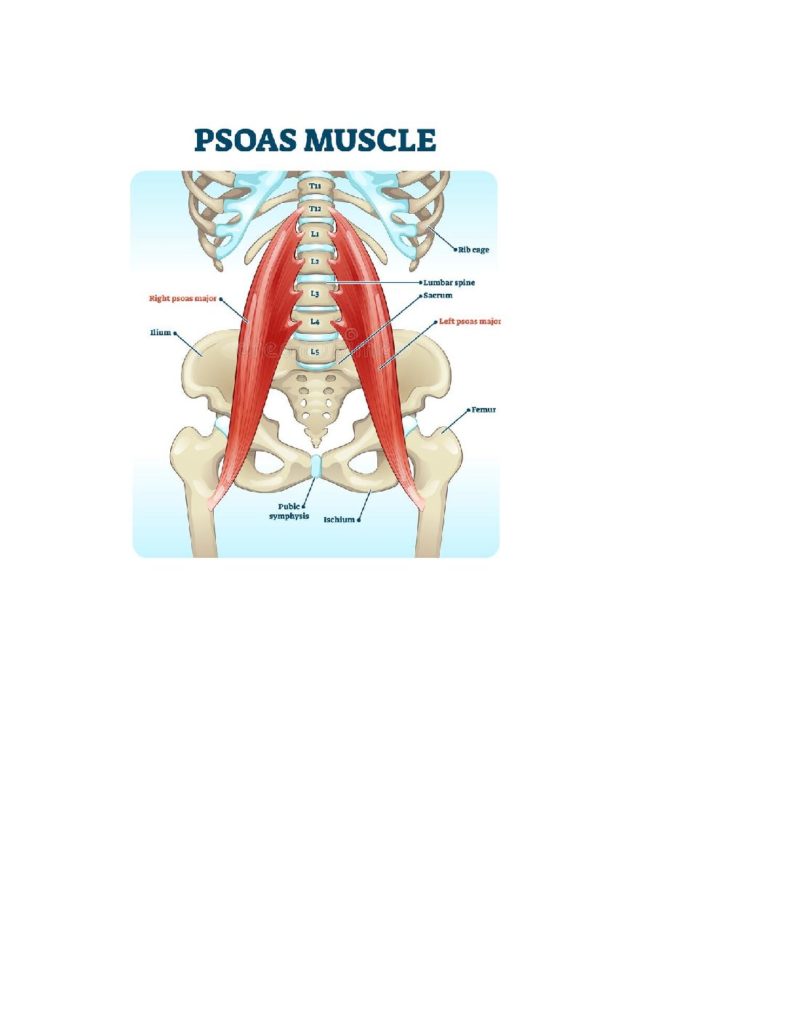Walking is falling. Our skeletal system is supported by cartilage, tendons, ligaments, fascia and muscles. Your Psoas muscles are deep core muscles that let you walk by keeping you from falling forward. These muscles act as “guy wires” and attach on your spine from T-12 – L5 and travels laterally across your abdomen and attaches to the inside of your femur. This deep hip flexor muscle allows you to squat, stand from a squat position, stand up from a sitting position and sit from a standing position. Tension and or stress in this muscle can disable one from performing simple tasks like standing, working a job, lifting, playing golf, exercising, bending over to pick something up off the floor, picking up your child, carrying something heavy, etc.
I’ve had clients who would go to their doctor for relief but the doctor couldn’t find anything wrong and would give them pain pills and refer them to a Physical Therapist or specialist. After they still didn’t get relief they came to me and in an hour would walk away leaving their cane behind.
When we were learning how to release tensions and trigger points in this muscle we were only given minimal and general information about all the symptoms when this muscle is angry. With experience I learned:
- Your Psoas can mimic Sciatica as this muscle lays directly over your pelvis. Pain shoots through this bone where your Sciatic nerve exits through the foramen. Pain can be anywhere from T-12 to down your legs.
- Walking is a challenge. Some are required to use a walker or a cane to prevent from falling forward. Their Psoas is so tight that its impossible for them to stand up straight.
- Sleeping comes in spurts because no matter what side you sleep on pain nags and screams all night. Walking and stretching is the only relief through the night.
- Pain radiates through the Glutes and down into the hamstrings.
- After sitting for an extended time standing straight if even possible takes several steps. There’s usually at least a slight bend at the waist until this muscle gets stretched out.
- Twisting from side to side while exercising, playing golf or turning to look back can make this muscle extremely angry.
- Bending over and then straightening back up can take your breath away.
- Many weren’t even able to put on their socks and shoes on because they couldn’t even reach their feet.
- Pregnancy can also trigger an unhappy Psoas. Babies kick this muscle and during a C-Section this muscle gets bumped and agitated.
- Muscles hold emotions. This is a very large muscle that stores lots of emotions, traumas, and depression.
The solution is simple. Find a therapist who does Psoas work. For those in the Denver, Colorado area reach out to me. My number is 719-496-7661. Texting is best and the fastest way to connect. After treatment I’ll teach you stretching techniques to keep your Psoas loosened up and happy.


Recent Comments